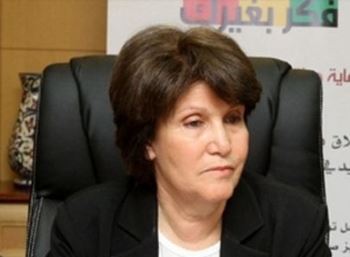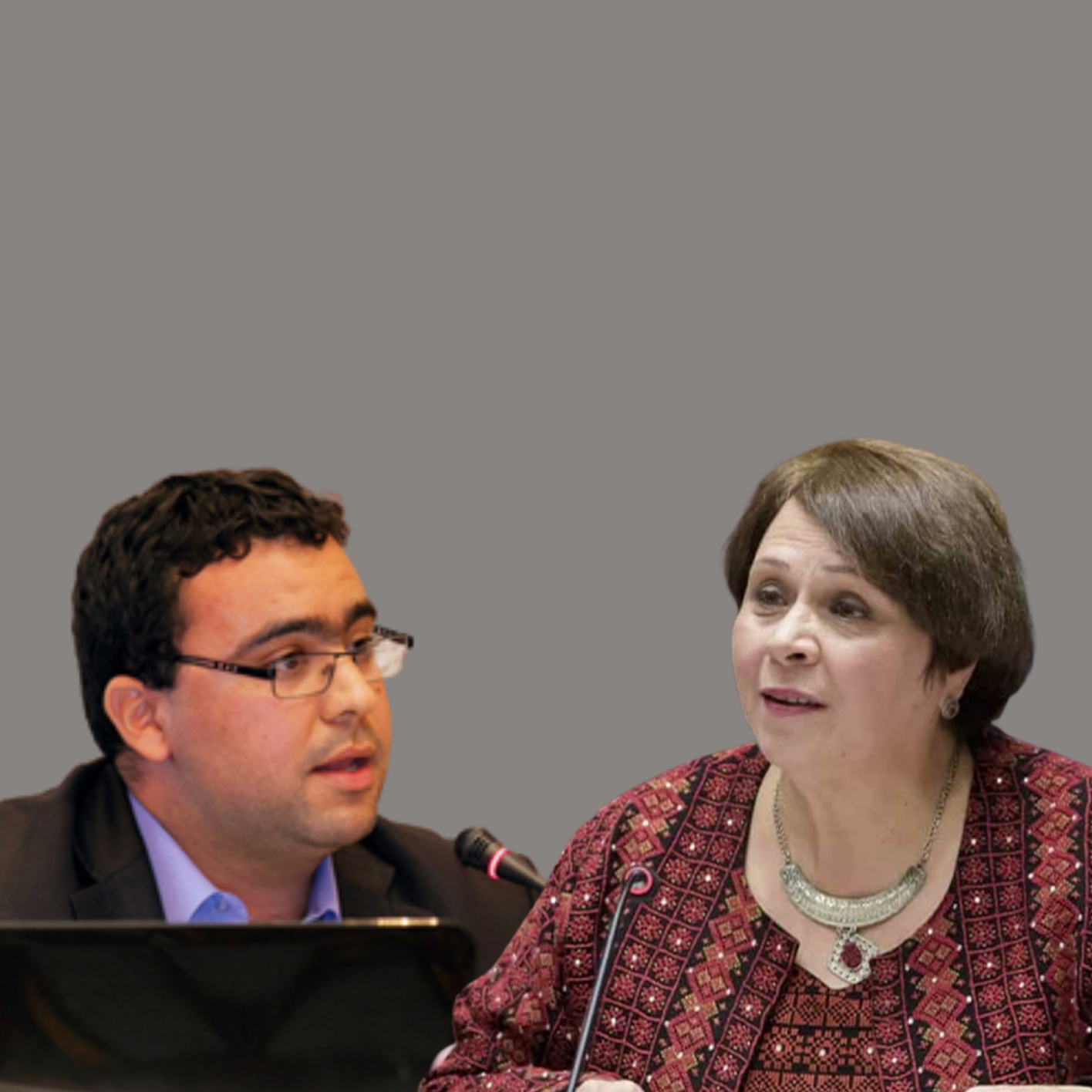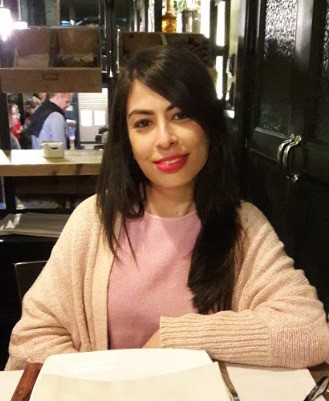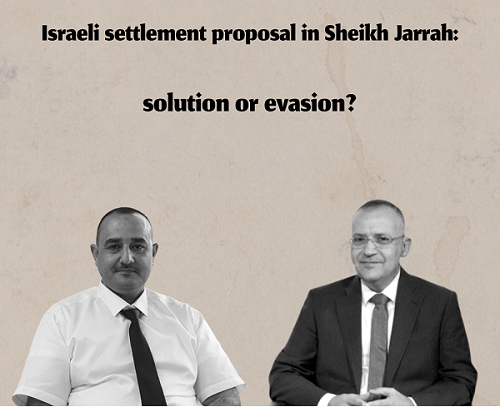
Introduction
DFLP politburo member Majeda Al Masri said the Front participated in the recent PNC session after in-depth internal and inter-factional discussions determined by several political and national factors.
Masri reaffirmed to “Hosted by MIFTAH” on the eve of the PNC’s 23rd session on the centrality of Jerusalem and its impact on the rights of the Palestinian people.
She also expressed the DFLP’s rejection of any attempt to establish a parallel body to the PLO, saying such attempts were doomed to fail because the Palestinians would never deal or interact with it.
She reiterated the Front’s adherence to the Central Council decisions made in its last two sessions, which proposed an alternative strategy to the failed course of negotiations. She pointed out that legitimacy is not the renewal of the legitimacy of individuals or figures, but it is about granting legal character to Palestinian institutions through elections.
Regarding the representation of women and youth in the PNC, Al Masri said: “As women’s groups, we demanded a minimum 30% representation in accordance with a PNC decision from the 2015 session.
Following is Majeda Al Masri’s interview with “Hosted by MIFTAH”
**What was behind the DFLP’s decision to participate in the PNC session?
After our discussions, both at the inter-factional level and within the Front itself regarding our participation in the PNC session, my wish was for this to be a unifying national council session in which all Palestinians participate. I also wanted preparation for this session to coincide with what the preparatory committee had proposed from the start, which is all factions that had held meetings in Beirut would participate, or at least the secretary generals of PLO factions, faction representatives, institutions and other forces. Unfortunately however, all of these efforts, including contacting the factions, including Hamas, Islamic Jihad and Fatah, did not yield the results we had hoped for, that everyone would participate and have a safe place to fall back on. It never happened. In our discussions with Fatah, however, over the last four days before the session, we laid out the conditions for our participation in the PNC meeting, based on four factors:
One: A guarantee that this council will not lead to even more division and that efforts to achieve reconciliation and end the division continue even if this period is highly complicated in light of the punitive measures being meted out against our people in Gaza and given the media crossfire that has been ongoing since the incident with the Prime Minister’s convoy. That is, we did not want the course of the reconciliation to be effected by the PNC session. The Egyptians reassured us of this; in addition there were the recent statements made by [Hamas chief] Ismail Haniyeh in which he reaffirmed his adherence to the PLO and that there would be no alternative or parallel body created. This was the key factor in our decision to participate.
Two: That preparations would be made afterwards for the next PNC session with a new structure, whether through elections, consensus or the participation of all Palestinian sectors.
Three: this is the most important factor because it is politics-related. The DFLP is committed to the Central Council decisions from their last two sessions, which proposed an alternative strategy to the failed path of negotiations. That is, we are still committed to these decisions even though they have not been implemented, or at least a large part of them. We will not accept for the ceiling of political decisions from this PNC session to be lower than those of the Central Council. In other words, the DFLP is not in agreement with the President’s vision because we feel it oversteps the Central Council decisions. The DFLP still rejects any negotiations along the lines of the Oslo Accords and is seeking the umbrella of an international conference according to the formula adopted by the Central Council. That is, under the auspices of the UN and according to international resolutions and with the participation of all members.
We had hoped everyone would participate in this PNC session. Nonetheless, we are serious in our participation and serious about its political outcomes; we consider them a collective, national responsibility. Still, we remain open to the option of withdrawing at any time if we see that major concessions might take place.
**What is your take on some of the alternative conferences being held and how much of an impact do they have on the unity of the PLO’s representation?
We are against any alternative or parallel conference and consider it a danger to the PLO, which is the sole entity for our people. All national action factions, including Hamas and Islamic Jihad consider the PLO the legitimate representative of the Palestinian people and on this basis want to participate in the PNC. The dispute, however, is over the mechanism for this participation, which ultimately led to it not happening. They also partake in the temporary national framework. While we called for its convention and for everyone in this framework to be present at the PNC, the meeting never happened. Nonetheless, any parallel or alternative body will not be successful; our people will reject it and any of its outcomes.
**What implications does this current PNC session entitled “Jerusalem and protecting Palestinian legitimacy” have?
Jerusalem for us is a top priority; it is a priority linked to Trump’s deal, which he began by talking about Jerusalem, preaching about it during his presidential campaign. Then after winning the presidency, he came out with his decision to declare Jerusalem as the capital of Israel, which he will put into effect on May 14, the anniversary of Al Nakba, with the opening of the US embassy in the city. In other words, Jerusalem is the number one point of contention and for us is a red line. We take this as a sign that Trump is intent on implementing his “deal of the century” whether in terms of Jerusalem, which is the most provocative to the sentiments of an entire nation, or how his deal denies the true history and rights of the Palestinian people. It is related to the right of return for refugees and to settlements, which is why the issue of Jerusalem is so serious; it affects all Palestinian rights.
As for the issue of Palestinian legitimacy, we are not talking about the renewal of legitimacy for individuals, but to grant legal character to Palestinian institutions, which always comes in tandem with the election process. This also applies to the PLO Executive Committee, which will be elected and which we hope will be comprised of a high caliber of people who have the ability to work, are honest and have nationalist qualities, whether they are faction representatives or independent figures.
We also hope for the renewed legitimacy of the Central Council through elections, because its term has gone on too long. This council is the legislative body in between two PNC sessions. In any case, the renewal of legitimacy on decisions pertaining to the structure of the PNC, which could be through the election process or by consensus, has always been the formula which the Palestinian people and its national movement have resorted to over the years of their struggle.
**Are you satisfied with the participation and representation of youth and women in the PNC? Are there any initiatives in this regard that will be presented at the session?
Let me be clear on this. I am not satisfied and not sure that the compass was even pointing in the direction of choosing women or youths as representatives, especially in regards to independent members who left for one reason or the other. This is because the choices were more faction-oriented, basically closer to Fatah. Instead, everyone’s compass should be pointed in the direction of women and youth.
**How can we reconcile women’s identity with the factional identity of women?
I think there is a demand by women’s institutions and the General Union of Women and all of us involved in women’s organizations, which talks about a minimum 30% representation in accordance with the Central Council decision taken in 2015 but which was not implemented, at least in the 2017 local council elections. Neither was it included in the amendment to the elections law by the Council of Ministers. That is to say, it remained a verbal demand. Even though the women’s movement has followed up on this in order to pass it as law, this has not happened. Meanwhile, the women’s movement within factions is working on highlighting women’s identity.








